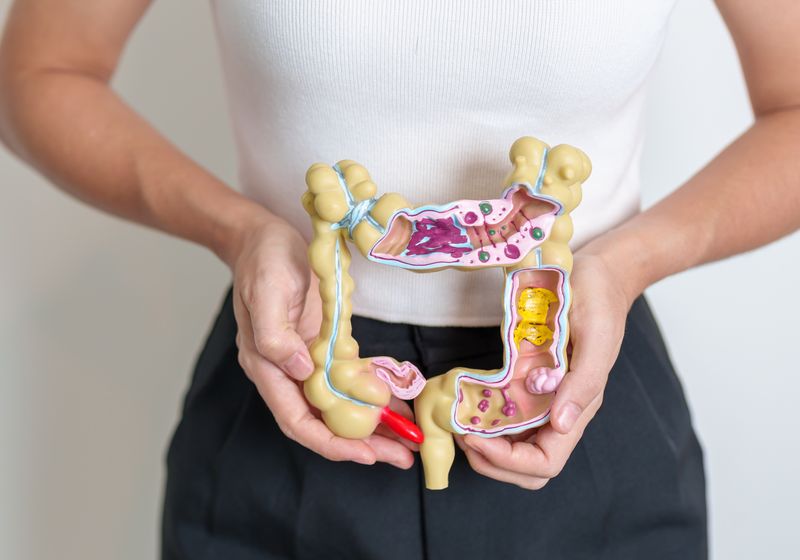Bacteria in the gut secrete a toxin that kills macrophages residing in the gut, driving ulcerative colitis.
Millions of people worldwide suffer from ulcerative colitis, a type of inflammatory bowel disease that causes ulcers in the colon. Its symptoms include abdominal pain, bleeding with stools, and fever, accounting for a quarter-million hospital visits annually in the US.1 Despite this, scientists do not fully understand the biology of the disease.
Now, a team of researchers led by Fangyu Wang, Xuena Zhang, and Minsheng Zhu at Nanjing University found that a toxin-secreting gut bacterium kills protective immune cells in the intestinal layer, potentially driving ulcerative colitis.2 The findings, published today in Science, highlight how microbes could contribute to ulcerative colitis and offer insights on potential therapeutic targets.
Ulcerative colitis is marked by epithelial barrier defects in the innermost lining, or the mucosal layer, of the intestines.3,4 However, researchers did not completely understand the factors that disrupt the epithelial barrier integrity.
Since the gut epithelium is constantly exposed to microbes, it houses a large number of macrophages. Wang, Zhang, Zhu, and their team hypothesized that this macrophage population would be compromised in ulcerative colitis, leading to epithelial barrier defects.
Immunohistochemistry of colon biopsies from people with ulcerative colitis revealed that tissue-resident macrophages were depleted. The researchers suspected that gut bacteria could produce factors toxic to the macrophages, contributing to their diminishing population.
They collected stool samples from people with ulcerative colitis and isolated bacteria from these samples. Treating cultured macrophages with bacterial supernatant resulted in cell death, indicating that gut bacteria in people with ulcerative colitis secrete factors toxic to macrophages.
Using chromatography and cytotoxicity assays, the researchers narrowed down on aerolysin, a pore-forming toxin produced by the bacterial genus Aeromonas, as the macrophage-toxic protein. Infecting mice with Aeromonas bacterial strains depleted their gut macrophages, increasing the animals’ susceptibility to gut injury and colitis.
Finally, Wang, Zhang, Zhu, and their team investigated if people with ulcerative colitis frequently carried the macrophage-toxic Aeromonas bacteria. Analyzing fecal samples from people with and without ulcerative colitis revealed higher bacterial load in samples obtained from the former group, which also contained higher levels of aerolysin.
“Directly targeting these microbes and their toxins could be a promising avenue for treating [inflammatory bowel disease] without inhibiting the patients’ immune system with biologics, such as antibodies, and steroid drugs,” wrote Sonia Modilevsky and Shai Bel, biologists at Bar-Ilan University, who were not associated with the study, in a related perspective article.5

